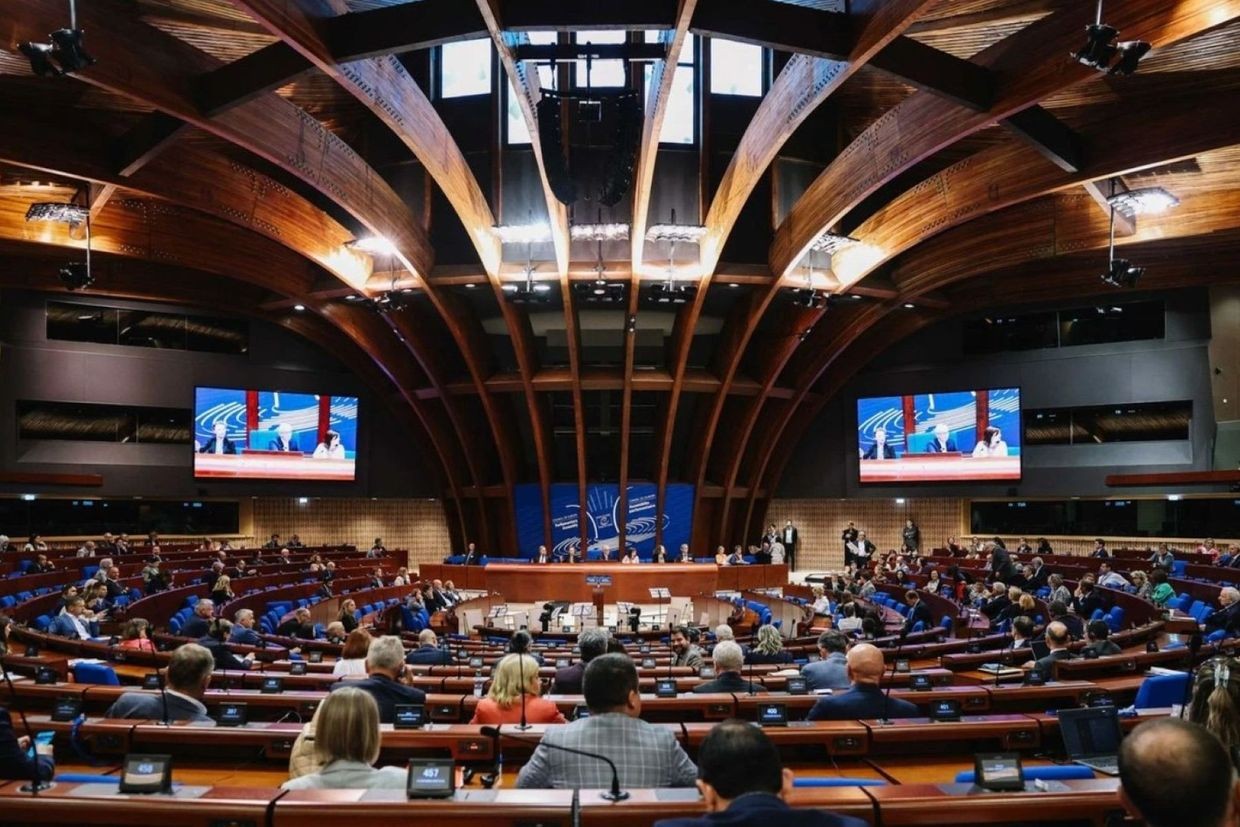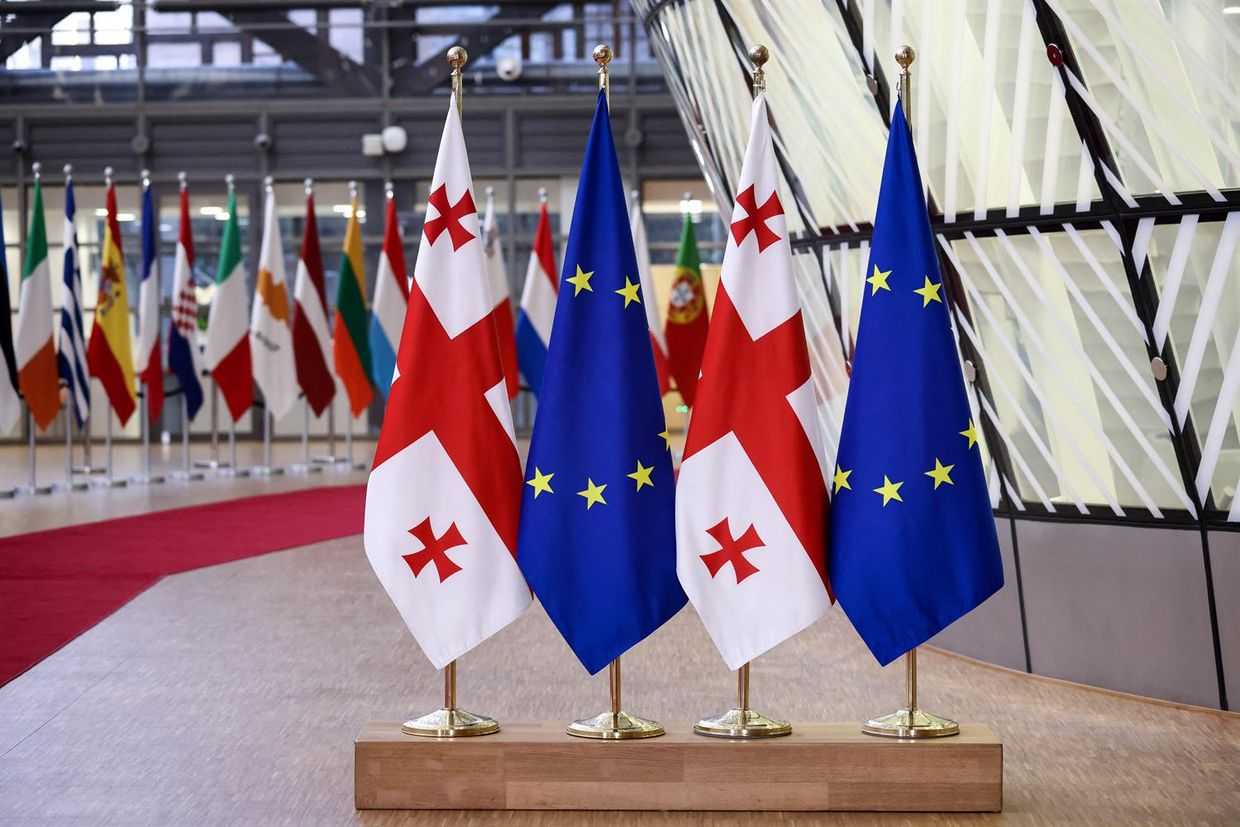Council of Europe says there is ‘rapid and dramatic democratic backsliding’ in Georgia

The Council of Europe has issued both a memorandum recommending that the controversial foreign agent law be repealed, as well as the ‘LGBT propaganda’ legislation, while the council also adopted a resolution saying there is a ‘rapid and dramatic democratic backsliding’ in the country.
The memorandum, which was authored by the council’s Commissioner of Human Rights Michael O’Flaherty, follows his visit to Georgia from 21 to 23 January.
O’Flaherty said his recommendations were ‘prompted by the actions taken by the authorities during the protests in November and December 2024, including the use of force against predominantly peaceful protests’.
He also called the pre-trial detention of media manager Mzia Amaghlobeli ‘unjustified’ and called on the Georgian authorities to release her.
In his recommendations, O’Flaherty stated that the Georgian authorities should guarantee all of Amaghlobeli’s rights ‘to due process and [the] presumption of innocence’.

Since the protests began against the foreign agents law and then the government’s EU U-turn began, law enforcement officers and unidentified masked people have assaulted a number of protesters, including tens of journalists covering the demonstrations.
‘[O’Flaherty] recommends that the Georgian authorities take all necessary steps to ensure effective investigations into cases of ill-treatment of protesters, including by strengthening the independence and effectiveness of the Special Investigation Service’, the statement read.
‘He also recommends requiring all law enforcement personnel to wear distinguishable identification to enhance accountability’.
According to the memorandum, O’Flaherty recommended that the Georgian authorities fulfil their obligation to respect and protect the rights to freedom of expression and peaceful assembly.
‘[He] recommends that the authorities take all necessary steps to ensure effective investigations into cases of ill-treatment, unlawful arrest, and other abuses committed by law enforcement officers and groups associated with the authorities during protests and other public assemblies, as well as against journalists covering these events’.
O’Flaherty, the Council of Europe’s Commissioner for Human Rights, explicitly recommended in his memorandum on the human rights situation in Georgia that the controversial foreign agent law be repealed, as well as the ‘LGBT propaganda’ legislation, called the ‘law on the protection of family values and minors’.
In 2024 for weeks as parliament discussed the foreign agent law, tens of thousands took to the streets of Georgia to protest against the draft legislation.
The law, adopted on the background of clashes between demonstrators and law enforcement officers, labels any civil society or media organisation that receives at least 20% of its funding from abroad ‘organisations carrying out the interests of a foreign power’. Such organisations are subject to monitoring every six months, which lawyers have warned could include forcing them to hand over internal communications and confidential sources. Organisations that do not comply are subject to large fines.

In September, Georgia’s parliament adopted the ruling party’s homophobic legislative package in its third and final reading, banning ‘LGBT propaganda’, same-sex marriage, and gender affirming medical treatment.
It is far-ranging, affecting education, healthcare, media, business, and public gatherings, and demonstratively prohibiting a number of rights that are unavailable to queer people in Georgia.

‘Rapid and dramatic democratic backsliding’
The Congress of the Council of Europe also adopted a resolution on Wednesday condemning the ‘democratic backsliding in Georgia.
It was supported by 101 members of the Congress, while 10 voted against, and three abstained.
‘Amid deepening polarisation in Georgia, the rapid and dramatic democratic backsliding observed over the past two years, has affected local democracy in Georgia increasingly’, the resolution stated.
The resolution said the backsliding has intensified in the aftermath of the 2024 parliamentary elections, the results of which ‘were rejected by all opposition parties, domestic, and some international election observers, notably due to concerns over their integrity, and of the decision to halt Georgian EU accession on 28 November 2024’.
The resolution further elaborated that democratic institutions have become fundamentally weakened and consolidated in the hands of the ruling Georgian Dream party.
‘The progressive marginalisation of the opposition from the political scene and the lack of dialogue between the authorities and the opposition has led to a de facto absence of political pluralism, including in municipal councils [...] this situation has led to an excessive concentration of power by the ruling party, and has prompted the opposition to boycott all decision-making bodies, shrinking the space for negotiation and mediation’.
Following the ‘highly controversial’ adoption of the Law on Transparency of Foreign Influence and the Foreign Agents Registration Act (FARA) adopted in first reading, ‘there has been increased intimidation and stigmatisation of NGOs and dissenting voices in the media’, the resolution continued.

‘In a democratic society, freedom of expression must be protected, supported and promoted irrespective of whether it is critical of the government, and even if it is influenced by international discourse’.
The resolution also expressed concern over the amendments to the Election Code of Georgia regarding local elections, noting that these amendments strengthened the dominant role of the ruling party in the Central Election Commission, further undermining its independence.

‘The delegation considers that urgent measures are needed to resume political dialogue at all levels of government and involving all stakeholders, to reduce polarisation, restore the checks and balances essential in a pluralist democracy and regulate the participation rights of the opposition’, the resolution said.
‘The delegation considers that urgent measures are needed to resume political dialogue at all levels of government and involving all stakeholders, to reduce polarisation, restore the checks and balances essential in a pluralist democracy and regulate the participation rights of the opposition’.
Meanwhile, Georgian Dream officials rejected the resolution, echoing previous sentiments from the West that have condemned Georgia’s repressive legislation and crackdown on protests.
The Chair of the Georgian Parliament’s European Integration Committee, Levan Makhashvili, while speaking about the resolution, stated that ‘the comments we heard, or the spirit that is in this document, are unacceptable to us’.
‘We saw violence in front of the parliament’, he said.










